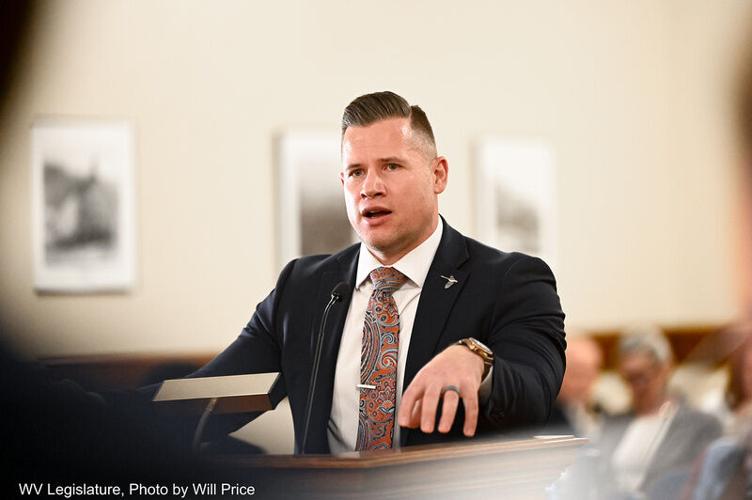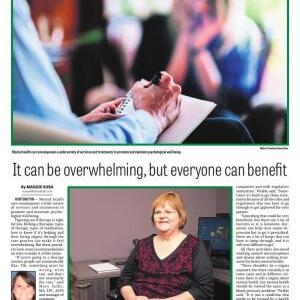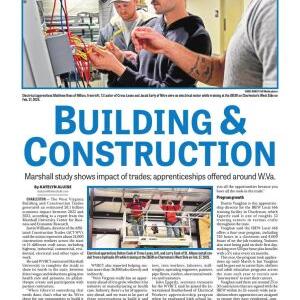On a Thursday evening in Parkersburg, a group of local residents gathered to discuss West Virginia foster care ����ֱ��� a system that is struggling from top to bottom with thousands of kids in care.
A moderator asked foster and biological parents, child welfare workers, judges and others to describe their experience with the system.
Their responses: ����ֱ���Challenging.����ֱ��� ����ֱ���Overwhelming.����ֱ��� ����ֱ���Traumatizing.����ֱ��� ����ֱ���Broken.����ֱ���
����ֱ���Nobody would listen. Nobody would talk to me,����ֱ��� said Lisa Easter, who had more than 50 foster children in her home in 25 years.
Julie Jones stopped fostering after Child Protective Services went months without checking on a newborn baby in her care. She was mailed a blank birth certificate and worried if the state was aware of the child����ֱ���s whereabouts. ����ֱ���I couldn����ֱ���t do it any longer,����ֱ��� she said.
In the corner of the room, new Department of Human Services Secretary Alex Mayer listened as people described a frustrating system riddled with inconsistencies, staffing shortages, an overwhelmed judicial system, limited support and children who have been victims of it all.
Mayer, who came from South Dakota, believes it can be fixed. It����ֱ���s going to take time, he says, but work is underway. He is focused on accountability, transparency and putting in processes that aren����ֱ���t in place for consistency. He wants more in-state programs that can help kids with behavioral health struggles.
����ֱ���It����ֱ���s going to be incremental over time,����ֱ��� Mayer said. ����ֱ���I think it����ֱ���s going to be a long road until we have everything addressed confidently ����ֱ��� You����ֱ���ll be seeing here shortly some really positive steps.����ֱ���
A federal judge recently West Virginia����ֱ���s foster care system has suffered from ����ֱ���shocking neglect����ֱ��� and ����ֱ���bureaucratic indifference.����ֱ���
There����ֱ���s a , and safe in a state that is fastest to remove children from homes and . Too many children have ended up , and the state sending foster kids to out-of-state group homes.
����ֱ���The thing that was shocking to me was the number of kids in care,����ֱ��� Mayer said.
There are more than 6,100 children in West Virginia foster care, and the number has skyrocketed during the state����ֱ���s drug crisis. The state����ֱ���s high poverty rate has contributed to the number, too.
Gov. Patrick Morrisey appointed Mayer, 37, to oversee DoHS.
Mayer will have to grapple with pervasive foster care problems as the Trump administration that serve families in poverty and help vulnerable kids. The state could see a decline in federal funding, impacting programs like Medicaid and the Supplemental Nutrition Assistance Program that are intertwined with child welfare. DoHS also oversees Medicaid, SNAP and more.
����ֱ���Child welfare is a very intricate, complex system, and there����ֱ���s a lot of different players, which ����ֱ��� obviously increases the level of complexity,����ֱ��� Mayer said. ����ֱ���I����ֱ���ve been really intentional and just trying to get out to learn the system.����ֱ���
����ֱ���I just have a passion for helping����ֱ���
Mayer, who was adopted, spent time in the military before working at a residential facility that served people with severe mental illnesses. He later worked in South Dakota����ֱ���s state government, dealing with SNAP and child welfare.
����ֱ���Different steps in my life have led me down this path,����ֱ��� he said. ����ֱ���Over time, I think I����ֱ���ve just developed this passion for solving problems, which I think has inherently then created this desire to support families and kids ����ֱ��� I just have a passion for helping.����ֱ���
He has spent the last few months traveling the state meeting with his staff, touring residential facilities and trying to understand how the system works.
The federal government is continuing of West Virginia����ֱ���s foster care system after it was flagged for sending too many children with disabilities to group homes. The state still sends children with disabilities to group homes and treatment centers at a rate .
Two-hundred and seventy are in out-of-state facilities around the county ����ֱ��� some miles away from their biological families ����ֱ��� because the state doesn����ֱ���t have enough in-state beds that can serve children����ֱ���s complex needs. The state����ֱ���s CPS workers are required to visit kids once a month.
Mayer said he����ֱ���s examining where the state could increase specialized care, like being able to serve children with aggressive or sexualized behaviors who aren����ֱ���t able to be served in a traditional foster home.
����ֱ���We don����ֱ���t have placements for these kids. Well, that����ֱ���s not an option anymore,����ֱ��� he said. ����ֱ���And, if those placements aren����ֱ���t here ����ֱ��� then we have to find a way to make that happen, because we want to keep kids as close as possible to their support network for a variety of reasons.����ֱ���
There����ֱ���s a shortage of foster families, and Mayer hopes to bolster recruitment and support services.
He noted a glaring shortage of afterschool and summer programs for teens, which could be useful in helping working parents take in teenagers in foster care. Teens ages 13 to 17 are the most common age group in state foster care.
There����ֱ���s also a need for creating agency processes that will breed consistently in decision making across the state, Mayer said. Child welfare cases involve a number of stakeholders ����ֱ��� judges, attorneys, CPS workers and others ����ֱ��� who all have an opinion and sometimes decision making about a child����ֱ���s future.
����ֱ���I think our practice model is one of those pieces that needs some real work,����ֱ��� he said.
Earlier this year, Mayer pushed back on a Republican-sponsored bill, which ultimately failed, that would have of the foster care system. Mayer vowed changes to lawmakers without a study.
Potential federal funding changes under Trump
West Virginia����ֱ���s foster care system relies on federal and state funding, and there����ֱ���s some unpredictability in spending due to kids fluctuating in and out of care and the rising price of out-of-state facilities.
Lawmakers, who have struggled in recent years to , allocated more than $300 million to foster care in their recently passed budget. Their 2026 mandated that DoHS spend some money on designated line items to prevent the agency from shifting money around to pay bills. But Morrisey vetoed that idea, it was too restrictive for DoHS.
The Republican governor, who wants to reign in state spending, also for programs that support babies born with Neonatal Abstinence Syndrome and foster children.
Mayer said that right now, he doesn����ֱ���t think the department needs additional funding to tackle the crisis. It will likely rely on partnerships with the faith-based community, businesses and others that provide services to help children and families, he said.
����ֱ���I think we just need to get more attention on what is it going to take?����ֱ��� he said. ����ֱ���I don����ֱ���t know what that funding would be, or if it needs to be anything.����ֱ���
The state����ֱ���s federal funding could change since Republicans in Washington have proposed and Medicaid ����ֱ��� a program that provides health insurance to West Virginia foster children and in the state.
����ֱ���We����ֱ���ve been watching that really intently,����ֱ��� Mayer said regarding the potential federal changes.
This month, he has traveled around the state for additional foster care listening sessions in towns including Beckley, Burlington and Wheeling to hear from families, CPS workers and others. It����ֱ���s important, he said. The outside firm leading the sessions will compile a report detailing problems and potential solutions.
����ֱ���I����ֱ���m kind of excited to see, you know, what we����ֱ���re able to accomplish here,����ֱ��� he said.














